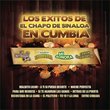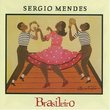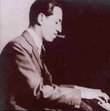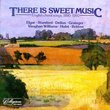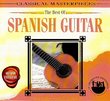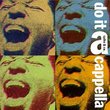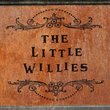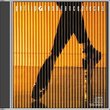| All Artists: Wolfgang Amadeus Mozart, Johann Friedrich Reichardt, Karl Leopold Rollig, Johann Abraham Peter Schulz, Johann Gottlieb Naumann Title: Music for Glass Harmonica Members Wishing: 0 Total Copies: 0 Label: Vox (Classical) Release Date: 8/22/1994 Genre: Classical Styles: Chamber Music, Historical Periods, Classical (c.1770-1830) Number of Discs: 1 SwapaCD Credits: 1 UPC: 047163817427 |
Search - Wolfgang Amadeus Mozart, Johann Friedrich Reichardt, Karl Leopold Rollig :: Music for Glass Harmonica
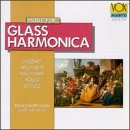 | Wolfgang Amadeus Mozart, Johann Friedrich Reichardt, Karl Leopold Rollig Music for Glass Harmonica Genre: Classical
|
Larger Image |
CD DetailsSimilar CDsSimilarly Requested CDs
|
CD ReviewsThe Mysterious Glass Harmonica eido | 03/06/2001 (4 out of 5 stars) "Were it not for Bruno Hoffmann, the glass harmonica repertoire could have easily slipped into oblivion. Much of the music for this quirky instrument remains little known, even with the further efforts of glass harmonicist Dennis James and the glass harmonica manufacturer G. Finkenbeiner Inc. This disk provides a tasty sampling of this unearthly music which was quite popular for a short period in the late 18th and early 19th century.Note, however, that Bruno Hoffmann is not playing on a glass harmonica on this recording, but rather the musical glasses. Before the invention of the glass harmonica by Ben Franklin in 1761, people played sets of glasses tuned with water-- some were even very good at this and became quite famous. The drawback was that it was very difficult to play multiple notes at once (just imagine trying to rub the rims of three wine glasses at once). Franklin solved this problem by creating what he called the "glass armonica" (posterity has added the "h")-- a series of bowls nested into each other, tuned by the glass blower rather than by water. Each bowl had a hole in the center so that they could be fitted onto a rod which was then set in a case. All bowls could be turned together by a crank or pedal, and the player, first wetting his or her fingers, played by touching the rims of the rotating bowls. Because they were nested in each other, it was much easier to play chords. The instrument enjoyed a period of great popularity-- becoming even notorious when performers began becoming ill and even banned in one German town when a child died during a concert. The glass harmonica faded away, appearing occasionally as a sound effect in opera.Bruno Hoffmann did much to revive this repertoire and was incredibly successful, especially considering that he did not have a glass harmonica to perform on! (He is forced to leave out some notes in chords). Dennis James has more recently put much effort into the revival of the glass harmonica-- he was determined to play on the real thing and constructed one for himself. Glass harmonicas can now be purchased through G. Finkenbeiner Inc., and Dennis James has recorded a CD on the glass harmonica ("Glass Music from Mozart's Time").This CD is a fantastic introduction to this music. The only down side is that the liner notes are pretty dismal-- though, at this price, who can complain?" Well worth all my years of searching Laraine A. Barker | New Zealand | 02/01/2000 (5 out of 5 stars) "And what a surprise to be able to buy such a treasure at such a low price! The sounds Bruno Hoffmann produces from his strange instrument are unbelievable--magical, ethereal. But Hoffmann must have recorded much more than what is on this disc in his long recording career. There's a reasonable body of 18th century music for glass harmonica. Why isn't it available on CD? For "technical reasons" Hoffmann preferred an upright version of his instrument, often referred to as the "glass harp". I'm not sure what those technical reasons were (as a non-musician I can only speculate) but I personally prefer the sound Hoffmann achieved to that from, say, Thomas Bloch. Bloch, for instance, plays the Mozart Adagio for unaccompanied glass harmonica much the same as one might expect an organist to play it. With Hoffmann you hear the bell-like as well as the singing qualities of the instrument. Whether that's what Mozart intended is, of course, another matter." MUSIC OF THE HEMISPHERES DAVID BRYSON | Glossop Derbyshire England | 02/04/2005 (5 out of 5 stars) "It would have helped if there had been a more fulsome explanation with this disc of the kind of instrument that Bruno Hoffmann is actually playing. All the liner-note tells us is that it is something called a `glass harp', apparently of his own devising. Presumably I can read reliably elsewhere about the kind of instrument Mozart's father was excited by. This appears to have been designed by no less than Ben Franklin and expertly played, I assume without resorting to hypnotism, by Anton Mesmer. If I have understood rightly, it was a set of glass bowls arranged on a spindle. This made it obviously more practicable than a set of separate glasses filled with water (or other liquids) to various levels, something that would call for an octopus of the requisite musical talent. But a `harp' - I really would have liked more detail.
Mesmer himself could not have achieved anything so mesmeric as Mozart's Adagio and rondo. This is a late piece, from his last months, and has the peculiar rarified feel to it that others of his works from the same time do. Over and above the special idiom, there is of course the weird other-worldly sound. Unlike the rest of the composers represented here, who tend to use the instrument antiphonally against the remainder of the group, Mozart builds its strange resonance in with the flute, oboe, viola and cello that make up the balance of his ensemble. Allegedly the original glass harmonicas had adverse effects on their hearers' nerves, and I can quite imagine. Happily I can report all the same that neither 20 minutes of Mozart nor 55 minutes in total of the ever-euphonious 18th century gave me any such reaction. The pipes of Pan in legend could create the panic that is called after them, but they could entrance their hearers also. The other four composers sharing the disc with Mozart are all contemporaries of his, and their music strikes me as definitely good, not totally overshadowed by Amadeus. There is another short number by him for the harmonica on its own, and the item from Schulz is a similar effort, of the same length and in much the same mood. The Naumann quartet is for Mozart's forces minus the oboe. In the other two compositions the harmonica is combined with strings, a standard quartet from Roellig and that plus a double-bass from Reichardt. The sequence of the works on the disc has been sensibly arranged to minimise any possible fatigue to the ear, and I should say panic is an unlikely consequence. The recorded quality seems to me perfectly fair and acceptable. I know what the other instruments ought to sound like, so I have to assume that Dr Hoffmann's glass harp is accorded similar fidelity. The liner-note, by R.D.Darrell, is really quite helpful and instructive too, if only it had not left me hungering for more information about the glass harp." |

 Track Listings (7) - Disc #1
Track Listings (7) - Disc #1
